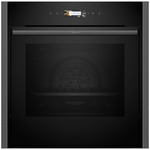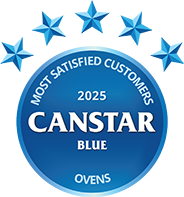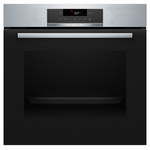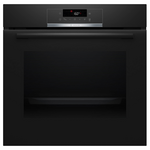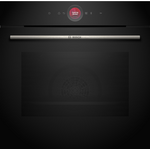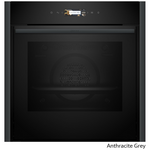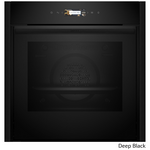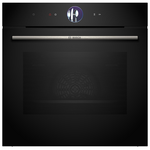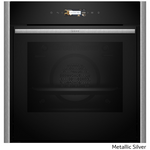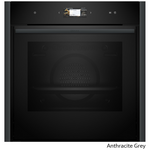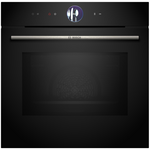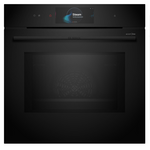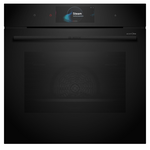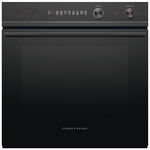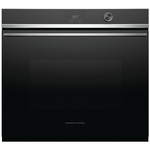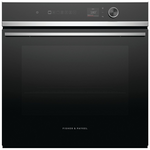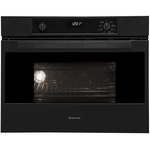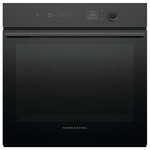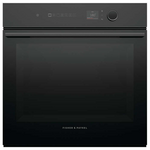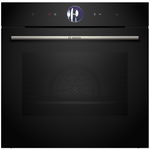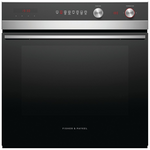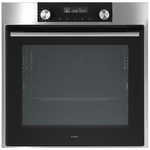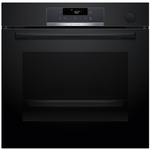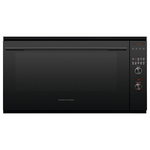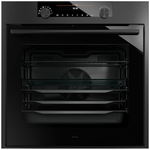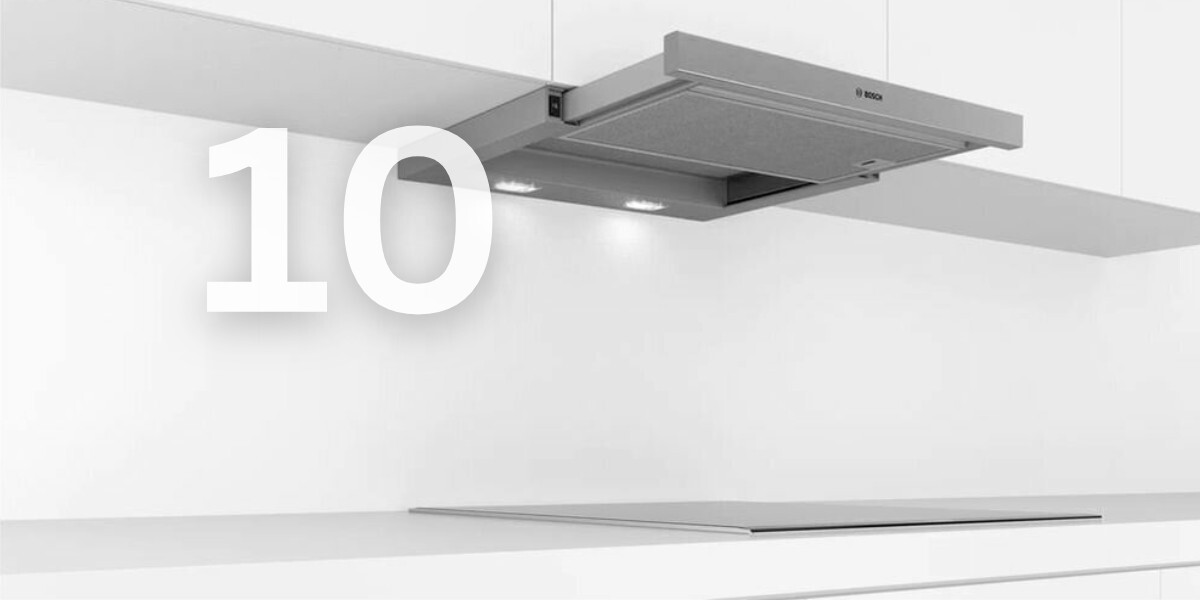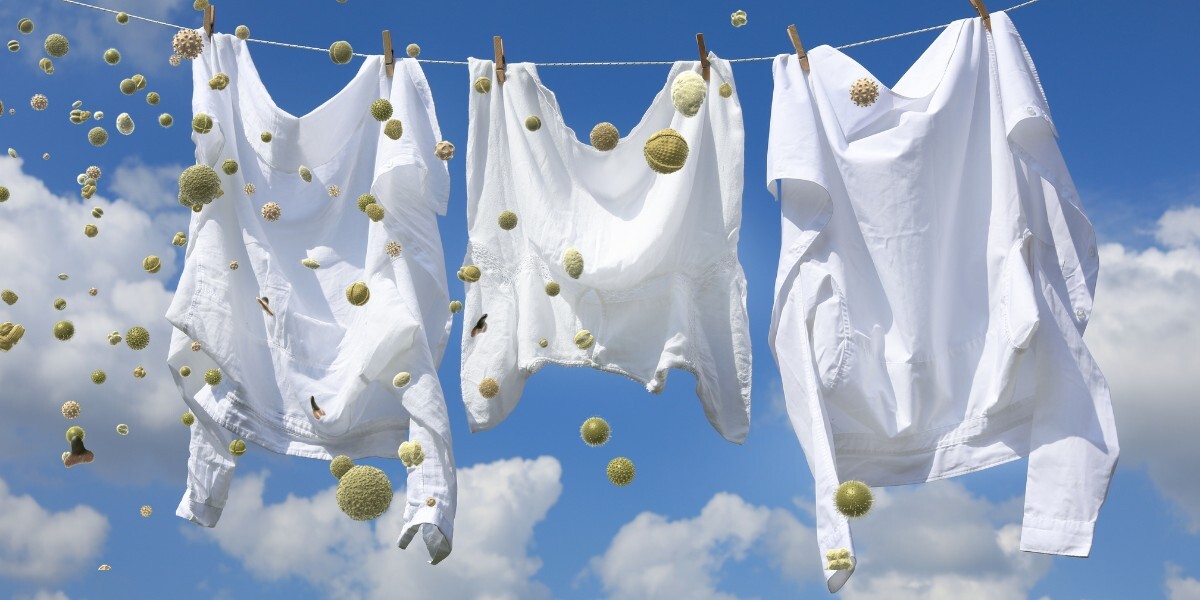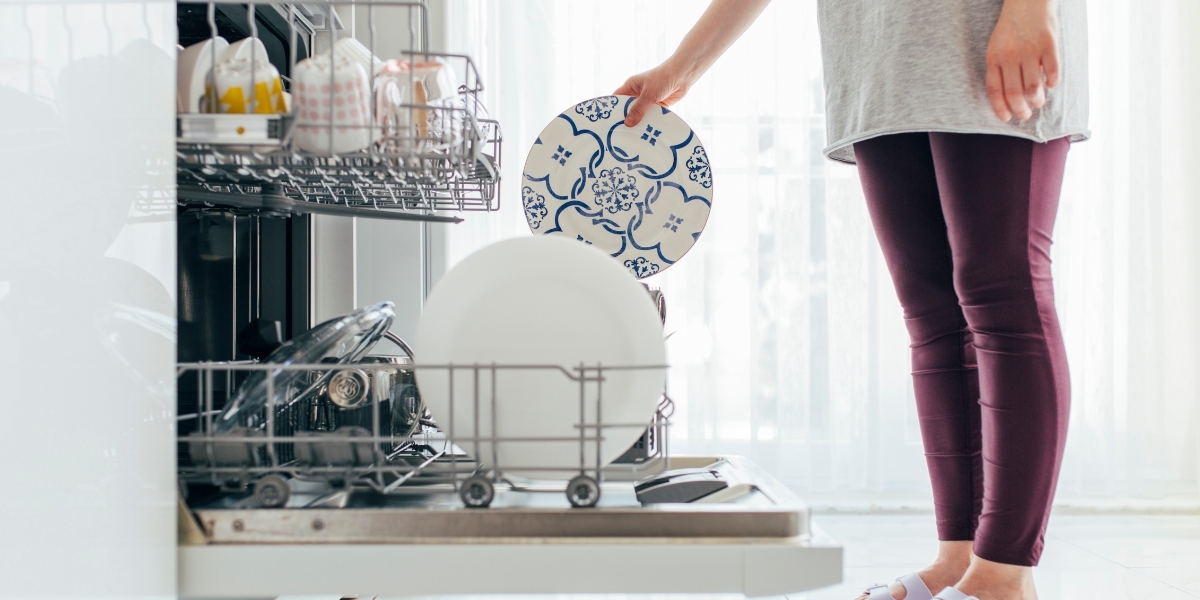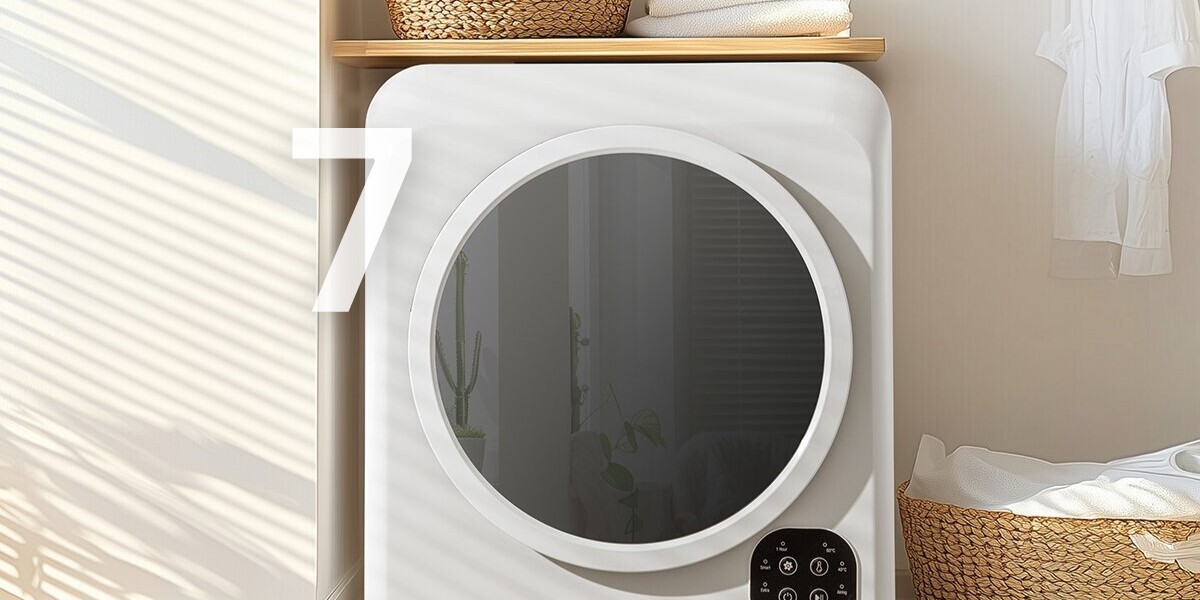
Your Cart
Your shopping cart is currently empty.
Kitchen
All things cooking, cleaning, chilling and more for the hard-working heart of your home.
KITCHEN | 19 JUNE, 2025
6 MIN READ
How often should you use the self-cleaning function on a pyrolytic oven?
Every few weeks or months, depending on how you use it.
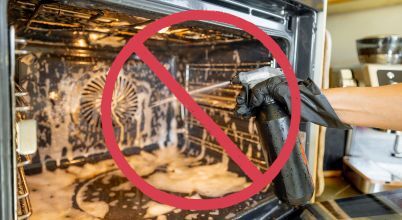
Rubber-gloved hands up who enjoys cleaning their oven? Of course not, it’s a slow and horrible job. But it doesn’t need to be.
Pyrolytic cleaning is a high-heat process (aka pyrolysis) that burns off grease and food residue, turning it into fine ash that you can easily wipe away. It’s a convenient way to keep your oven clean without resorting to harsh oven cleaner, but running it too often can use a lot of energy, while waiting too long can make cleaning more difficult. So, what’s the right balance? It really depends on what you cook in your oven, how you cook it and how often you use it.
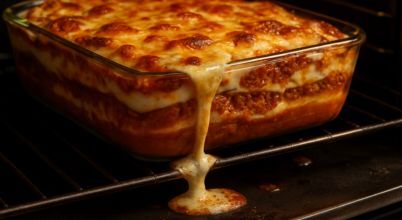
What makes the biggest mess in an oven?
Some cooking techniques leave more grime in your oven than others. Roasting and grilling tend to cause the most mess, especially if juices, fat or melted cheese drip onto the oven floor. Uncovered foods, like roast meats or baking trays of oil-drizzled veggies, tend to result in splatters, whereas covered dishes keep liquids contained but may not give you the crispy texture you’re after.
Anything cooked at high temperatures (such as pizza or pie) is likely to leave stubborn food residue if any sauce, topping or gravy makes its way onto the oven cavity or oven racks.
If you mainly bake covered casseroles or use a steam oven or steam cleaning function, your oven will stay cleaner for longer. If you can’t resist a succulent roast with crispy skin, though, you may need to run the pyrolytic cleaning cycle more often.
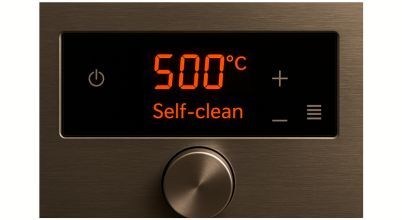
How pyrolytic cleaning works
Pyrolytic self-cleaning ovens can heat up to extremely high temperatures - usually around 450-500°C - to incinerate grease and baked-on food debris. This cleaning process typically takes 1.5 to 3 hours, depending on the level of cleaning required. Most pyrolytic ovens have different cleaning cycle lengths: a shorter cycle for light cleaning, sometimes a medium intensity cycle, and a longer one for deep cleaning heavy grime build up.
During the cleaning mode, the oven door locks for safety and only unlocks once the oven cools to a safe level. This can take an additional 30 minutes to an hour after the cleaning cycle ends. Some models, like those from Miele or Neff, alert you when it’s safe to open the oven door and clean up the fine ash with a damp cloth.
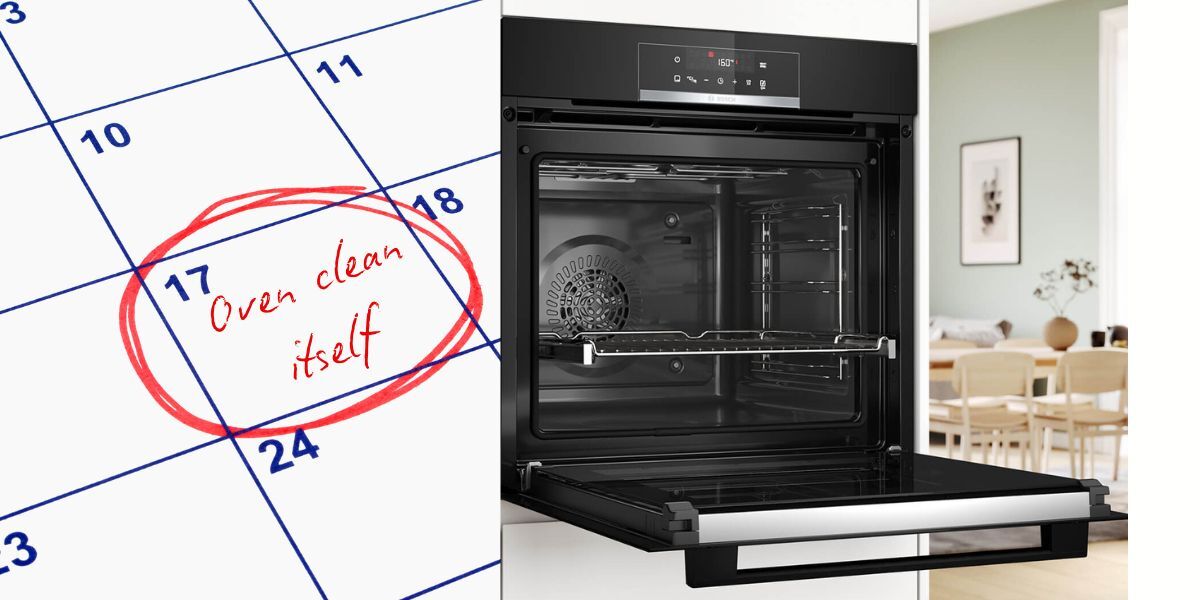
How often should you use it?
The frequency you should use the pyrolytic cleaning function depends on what and how often you cook, as well as how you cook it.
Start by following these general guidelines and then adjust the frequency accordingly if you find grime is building up faster or slower.
Light use (occasional baking/roasting): Every 3-6 months
Regular use (cooking most days): Every 1-2 months
Heavy use (frequent roasting/grilling): Every 2-4 weeks
To save running the pyrolytic cleaning function too often, help your oven out by wiping up spills with soapy water once the oven cools, use baking trays or liners to catch drips, and cover dishes when possible. While these steps can protect the oven interior they aren’t always possible - and let’s face it, you’ve chosen a pyrolytic oven for a reason! When grease and grime build up and the oven smells less than fresh, the self-cleaning feature is the easiest way to bring back the sparkle.
Make life easier with a self-cleaning oven
Tips for using the pyrolytic function
The pyrolytic cleaning function does away with the need for any hard work on your part, but there are a few things you can do to aid the process.
Make sure you’ve got good ventilation in the kitchen when running the self-cleaning function, as it can create odours during the burn-off phase. Windows open!
Check your oven’s user manual to see if it recommends removing certain parts, like the oven racks, stainless steel trim or liners, before running the cleaning mode. Some pyrolytic ovens now have racks and other components designed to withstand pyrolytic cleaning temperatures, whereas standard racks should be removed and cleaned separately with soapy water or baking soda to prevent discolouration.
Check the oven's warranty for specific care requirements, as not following the manufacturer's recommended cleaning procedures could affect your warranty coverage.
Self-cleaning issues?
If you notice that your oven still smells or smokes after a cleaning cycle, or if you’ve got a new oven that’s behaving oddly during its first runs, contact the retailer or check your warranty. Do not use additional cleaning products inside the oven cavity during a pyrolytic clean, as this can damage the surface.
Get your pyrolytic oven sooner with Free Next Day Delivery
Appliances Online can get your new self-cleaning oven to you sooner. We deliver pyrolytic ovens, stoves, rangehoods and the rest of our kitchen appliances to 95% of Australia’s population for free with Appliances Online's legendary FREE delivery - and we can usually get it to you by the next day (Mon-Fri). We even offer paid Same Day Delivery in NSW, QLD, and VIC metro areas if you order before 12pm on weekdays.
Electric ovens require a licensed electrician to install them, and to make things easier, you can choose to add this service to your order when buying your stove. Check out the full range of pyrolytic ovens here, or if you need some tips for choosing the best type or size for you, call our friendly team 24/7 on 1300 000 500, or message us via the chat icon at the bottom of your screen.

Oli is Appliances Online's editor and blogger, with almost two decades of lifestyle-related writing and editing to his name. With a mission to help you buy better and live smarter, his brand loyalty will forever belong to the appliance manufacturer that develops a self-emptying dishwasher.
Latest Articles
KITCHEN
24 FEBRUARY 2026
10 of our top best selling rangehoods in Australia 2026
The key to clearer air and cleaner surfaces in your kitchen
LAUNDRY
17 FEBRUARY 2026
If you suffer from allergies, a clothes dryer could be a game-changer
How indoor drying helps manage itchy eyes and sneezing
KITCHEN
5 FEBRUARY 2026
What are dishwasher place settings?
Find the perfect dishwasher capacity for your household
LAUNDRY
3 FEBRUARY 2026
7 of our top best selling vented dryers in Australia 2025-26
Need a stackable or wall-mountable tumble dryer?
More Like This
KITCHEN
24 FEBRUARY 2026
10 of our top best selling rangehoods in Australia 2026
The key to clearer air and cleaner surfaces in your kitchen
LAUNDRY
17 FEBRUARY 2026
If you suffer from allergies, a clothes dryer could be a game-changer
How indoor drying helps manage itchy eyes and sneezing
KITCHEN
5 FEBRUARY 2026
What are dishwasher place settings?
Find the perfect dishwasher capacity for your household

